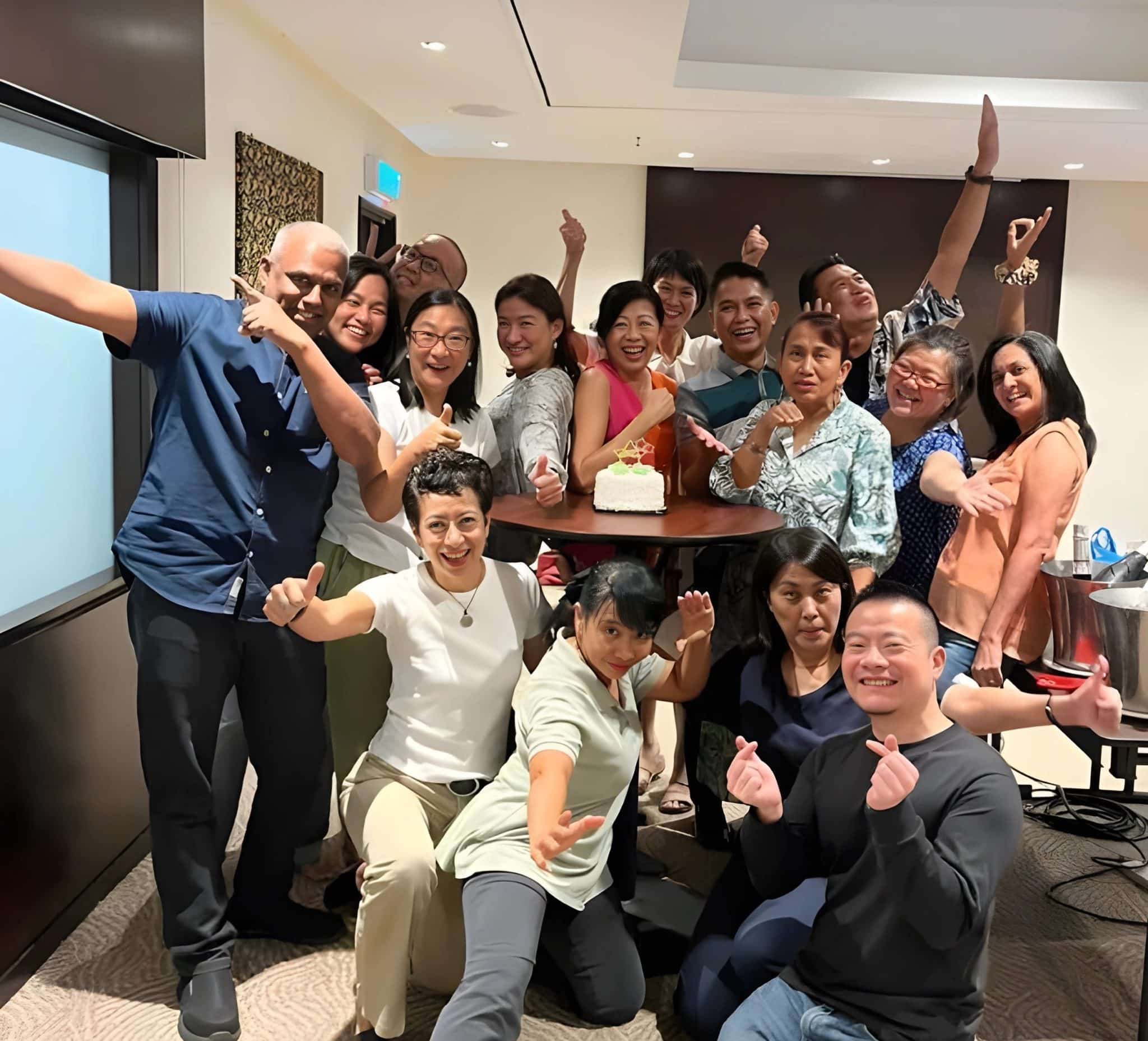What does it take to lead in a time of brokenness and loss?
Reverend Abel Cheah, via Alpha Asia Pacific // July 26, 2022, 6:27 pm

Jesus communicated a different way to live and lead in times of brokenness. Rev Abel Cheah of Alpha Asia Pacific shares three specific ways He did so. Photo by Bob Price on Pexels.
The past two years have changed the world. We have seen some of the biggest leadership tests of our lives: Covid-19, government upheavals, a war breaking out in Europe and a global economic recession – and we are still living through them.
As the world begins to wake up from a forced hibernation, leaders everywhere are navigating through what it means to rebuild a fragile ecosystem.
If you are leading a team or simply taking care of someone in this season, you may find that people are only beginning to come to terms with what they have lost, and what they are now aware is broken.
Beatitudes-driven leadership
As Christ-followers, we are called to shine the light of Christ (Matthew 5:14-16), not to curse the darkness in times like these. But for many of us, it has never been more difficult to lead than now – as we navigate a time of displacement, societal rage at institutions, and deep feelings of loss.
I believe Jesus was the greatest leader who walked the earth, and some of the earliest words He spoke in His public ministry give us a model of how to act and be in seasons of brokenness.
What did He say?
1. “Blessed are the poor in spirit, for theirs is the kingdom of heaven” (Matthew 5:3)
Jesus’ Sermon on the Mount was a kind of commencement speech, marking the beginning of a new movement, an upside-down kingdom unlike any other. So different was this kingdom manifesto that these words would have shaken the 1st-century world to its core. No king or ruler had ever instituted a kingdom on these terms.
Yet, at the start of His ministry, Jesus proclaimed both a blessing and a role for the poor in spirit: they are blessed, and they are citizens of the kingdom of heaven.
To be poor in spirit is to be surrendered to God and be utterly dependent on Him, in all circumstances, even when our plans and hopes have been dashed.
Leaders who are poor in spirit are rich in favour.
Leading out of a posture of surrender and complete dependence on God means we are absolutely reliant on His Spirit to guide our decisions and provide for our needs. It means our leadership isn’t a matter of positional authority and control but of stewardship and humility.
In the same way wealth can give us the power of options, being poor in spirit is the recognition that “I have no other option, no true alternative, apart from the grace of God”.
Leaders who are poor in spirit are rich in favour, because those who have emptied their hands and opened their hearts are most ready to receive God’s blessings.
2. “Blessed are those who mourn, for they will be comforted” (Matthew 5:4)
In the Kingdom of God, there is power in vulnerability.
This blessing is for the ones whose hearts are broken. This promise is for those who have turned to God in repentance and for those who have chosen to share in the pain of others. To them belongs the promise of comfort.
This beatitude is not referring to a kind of sadism that says, “God loves it when we are sad”. On the contrary, it speaks about God’s deep love for us and His presence with those of us who mourn due to trials, wrongdoings, loss and disappointments.
Christ-following leaders who receive God’s grace and comfort can be a comfort unto others.
Have you wept because of some brokenness in your family, team or community? There is a kind of mourning that leads to healing and not destruction.
In 2 Corinthians 7:10, we are told: “Godly sorrow brings repentance that leads to salvation and leaves no regret, but worldly sorrow brings death.”
The Lord is close to the brokenhearted, and He promises this in His Kingdom manifesto: “Blessed are those who mourn, for they will be comforted.”
You might have been hurt by serving hurting people. In the Beatitudes, Jesus identifies Himself as a leader who is near the brokenhearted (Psalm 34:18).
Healthy, Christ-following leaders who receive God’s grace and comfort can help others to make sense of the meaning of events. Those who receive the comfort of God can be a comfort unto others (2 Corinthians 1:3).
3. “Blessed are the meek, for they will inherit the earth” (Matthew 5:5)
You are blessed in cultivating meekness! This is perhaps the most surprising blessing of the first three beatitudes.
In a time of disarray and trouble, meekness doesn’t come naturally to problem-solvers. Meekness is usually not in the vocabulary of action planners. But we must remember: Meekness is not weakness.
Meekness is the combination of gentleness and self-control, the fruit of the Spirit that gives us the character of Christ.
To understand what meekness is, it is helpful to look at the history of how this word was used.
Meekness is not weakness. It is the fruit of the Spirit that gives us the character of Christ.
There were three common uses for this word in the Greek world:
First, it is used to describe the potency of medicine by doctors – the appropriate dose of medicine. Too much and it could poison, just right and it would heal.
Second, it was used to describe the force of the wind by sailors. A gentle breeze is refreshing, but a hurricane is destructive.
Third, it was used by farmers in the breaking of a wild horse. A farmer would break their horses, not of their strength but of their stubbornness.
In all three examples, meekness is a great power, but one that is used wisely and with self-control.
In His proclamation of the Beatitudes, Jesus communicated a different way to live in times of brokenness: with a posture of surrender, a broken heart and a meek spirit.
This is how we can lead like Jesus.
Questions for reflection:
- What does it mean to lead with a reliance on the Holy Spirit? How does this change the way I communicate vision, strategy and goal-setting?
- What would happen if I chose to lead with a heart that breaks for others?
- How can I model “power under control”? Where can I share power and influence with others?
This article first appeared in Alpha Asia Pacific, and is republished with permission.
Alpha is an effective form of evangelism when done by and through the local church. By focusing on the essentials of the Christian faith, it opens the door for Alpha to be used in almost any context so that everyone has the opportunity to see their friends’ lives transformed by the gospel. Churches are now able to run the Alpha sessions online through various video conferencing platforms. To find out more, go to https://asiapacific.alpha.org/.
We are an independent, non-profit organisation that relies on the generosity of our readers, such as yourself, to continue serving the kingdom. Every dollar donated goes directly back into our editorial coverage.
Would you consider partnering with us in our kingdom work by supporting us financially, either as a one-off donation, or a recurring pledge?
Support Salt&Light



